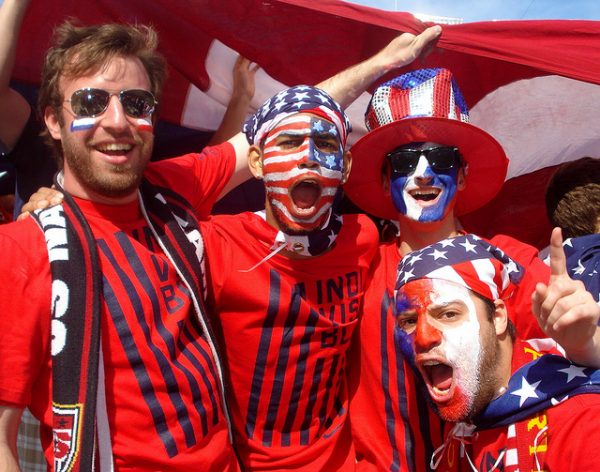
While social scientists have long talked about globalization, a new concept called “glocalization” has emerged as a way to highlight the ways that global patterns are accepted and interpreted by localized populations. Sport sociologists have been among the leaders in developing this concept, and the International Champions Cup (ICC), a soccer tournament making its way around the United States, helps illustrate and explain why.
By combining local customs and traditions with global trends, communities engaged in globalization have control over how the global viewpoint is digested. And this combination of the outside world with the inside world has become a highly effective tool of capitalism — jumping on recognized trends while providing a local twist makes glocalizing of certain products more appealing.
- George Ritzer. 2003. “Rethinking Globalization: Glocalization/Grobalization and Something/Nothing*.” Sociological Theory 21(3): 193-209.
When it comes to the ICC, we see American promoters and communities taking the world’s most popular sport and infusing it with traditional American sporting values. Club chants have been replaced by pop music that plays over the sound system like at many basketball and baseball games. Marching to the stadium with team banners and flags is replaced by exclusive fan party zones during tailgating. And players are elevated to celebrity status rather than community heroes.
- Barry Smart. 2007. “Not Playing Around: Global Capitalism, Modern Sport and Consumer Culture.” Global Networks 7(2): 113-134.
- Richard Giulianotti and Roland Robertson. 2007. “Recovering the Social: Globalization, Football and Transnationalism.” Global Networks 7(2): 166-186.
Glocalization, however, comes at the risk of loosing those who support what is already established. The ICC, for example, has created an artificial experience for hardcore fans because of the domination of casual fans — known as “post fans” — as the main spectator group. Post fans are casual supporters who have a certain expectation of what the event is supposed to entail, and often the experience they seek is very homogeneous with every other Western, middle class sporting experience. With the event being catered to post fans, hardcore soccer fanatics are left with a watered down experience. And within the context of the United States, Hispanics, Africans and other minority and immigrant groups are the primary soccer supporters. However, these groups are often at an economic disadvantage, which makes attending these games very difficult, further strengthening the post fan’s position in the glocalizing of the the global product of soccer.
- John Urry. 1990. The Tourist Gaze: Leisure and Travel in Contemporary Societies. London: SAGE Publications.
- Richard Giulianotti. 1999. Football: A Sociology of the Global Game. Cambridge: Polity Press.

Comments